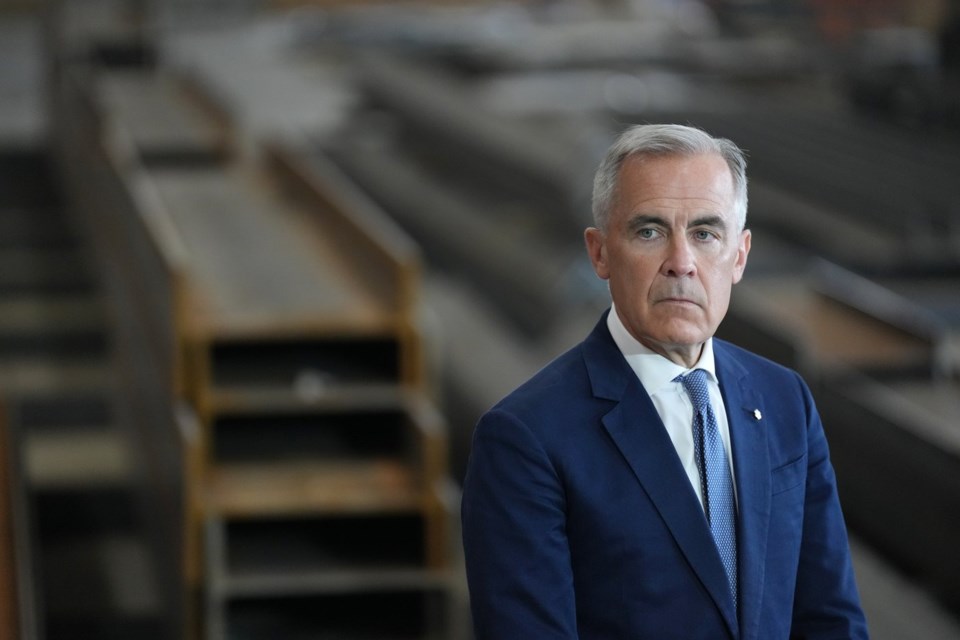Prime Minister Mark Carney said any future trade deal with the United States could include quotas on Canadian softwood lumber exports, a sector that has been a sore point in cross-border trade relations long before U.S. President Donald Trump's trade war.
"There is normally some element of managed trade that comes out of any agreement, " Carney said Wednesday in Hamilton, Ont., where he spoke to steelworkers to announce measures to support that industry.
He said "that can include quotas," among a "variety of trade factors."
Carney's comments come after B.C. Premier David Eby told Bloomberg News that the federal government had been speaking with the provinces about quotas to resolve the softwood lumber dispute as part of a larger deal.
"What the premier is saying that we are putting the option of quotas on the table as part of those discussions," Ravi Parmar, B.C.'s Forest Minister said in an interview Wednesday.
Parmar acknowledged that neither government nor industry have historically supported such quotas.
"But this is a really important time," Parmar said. "We are looking for the federal government to ensure that softwood lumber is just as important as steel or aluminum and auto in those conversations."
Carney said he had been in close contact with Eby about the softwood file, adding that resolving the conflict is a "top priority" as the United States prepares to double various duties to 34.45 per cent.
Canada and the United States have been without a softwood lumber agreement since 2015, and Eby has previously said that resolving the dispute could "build momentum" for a larger, more comprehensive trade deal.
Trump's latest threat is to impose 35 per cent tariffs by Aug. 1 on Canadian goods currently not compliant with the United States-Mexico-Canada Agreement.
Carney said he agreed with Eby's idea of resolving the softwood lumber dispute as part of a larger trade deal, but added that both issues are unfolding along different times lines.
British Columbia accounts for about 40 per cent of Canada's softwood lumber exports to the United States, according to the BC Lumber Trade Council, but the industry has been struggling, and artificial export limits could further damage it.
Kurt Niquidet, president of the B.C. Lumber Trade Council, said in a written statement that the industry represents a "cornerstone" of B.C.'s forest economy, and a "vital part" of Canada's trading relationship with the U.S.
"Resolving this long-standing dispute is essential to protecting jobs, supporting communities, and ensuring a stable, competitive future for our forest sector."
That statement did not directly comment on the quota proposal.
— with files from David Baxter
This report by The Canadian Press was first published July 16, 2025.
Wolfgang Depner, The Canadian Press



